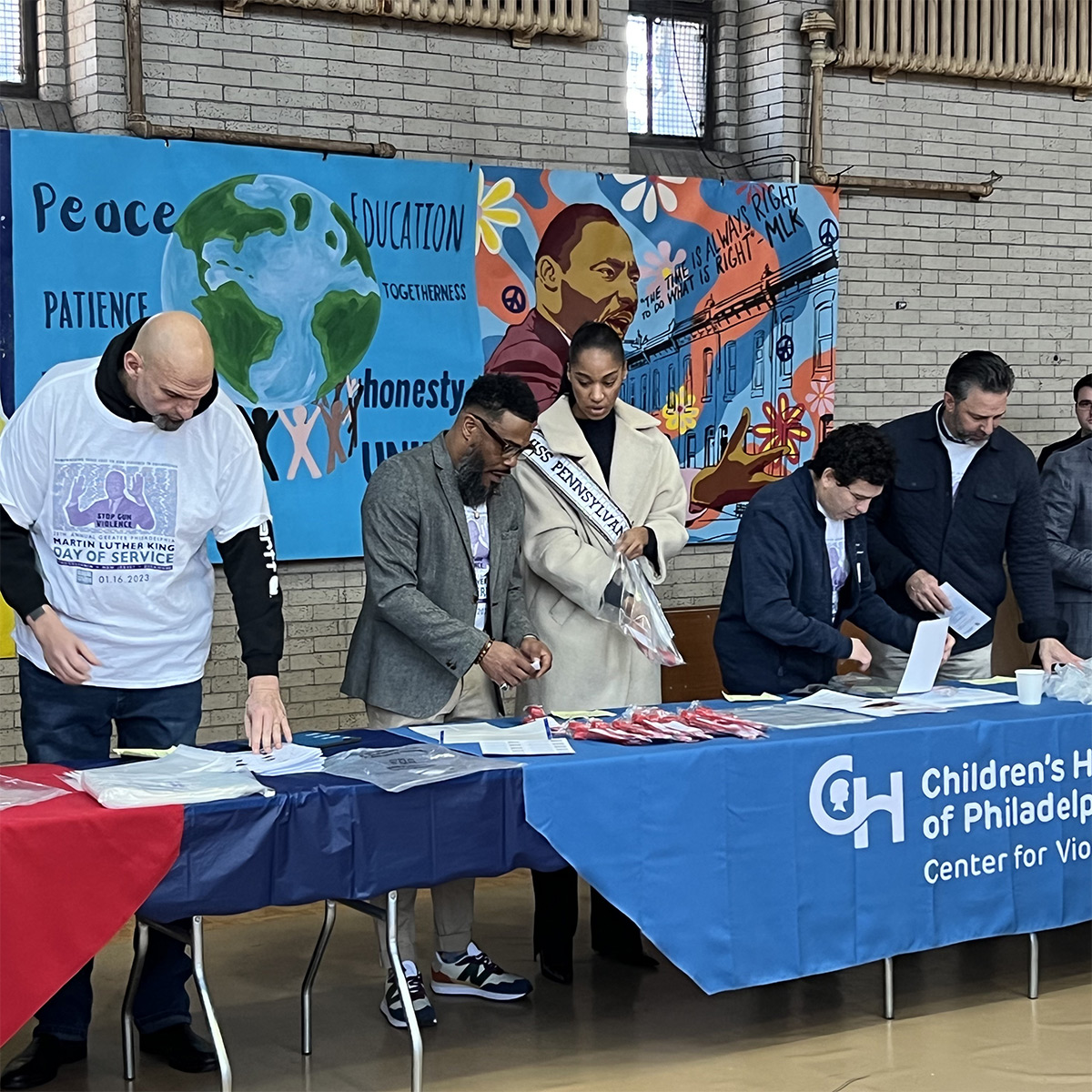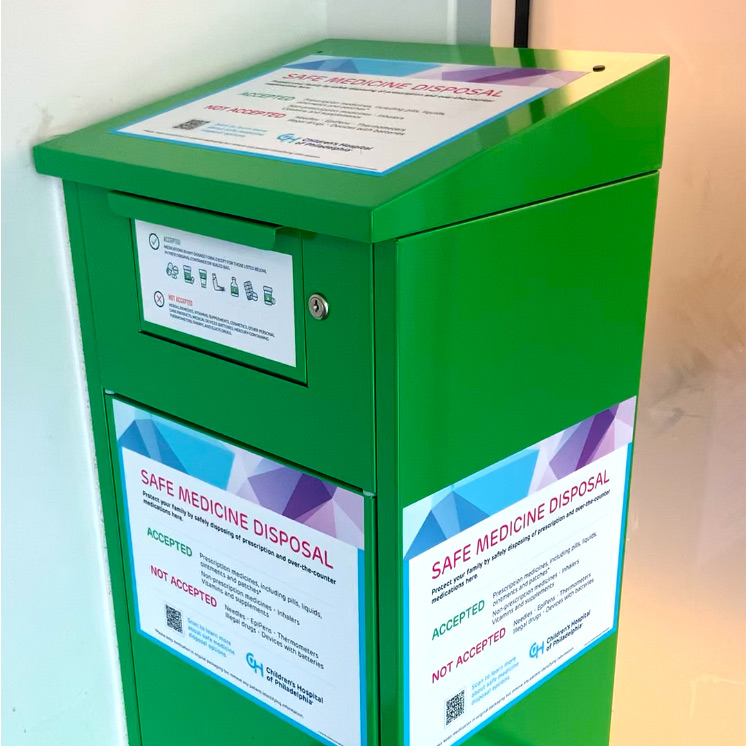Strengthen
Discover how together we are strengthening communities — aligning resources and systems for a healthier future.
The Period Project: From Awareness to Action
CHOP's Homeless Health Initiative (HHI) supports families in local shelters with free healthcare and advocacy. In 2020, a doctor-in-training from CHOP who was volunteering at one of these shelters met a teen who was missing school because she didn’t have access to period products. This encounter helped shine a light on a serious issue known as "period poverty.”
It sparked the creation of the Period Project, a team effort to ensure consistent access to essential menstrual supplies. Learn More
1 in 5 teens struggle to afford period products.
A Simple, Smart Solution
Period poverty can prevent people from attending school, work or job interviews. It can also lead to psychological stress, including shame and depression, and health issues like urinary or reproductive infections — especially for those in shelters.
The Period Project, created by CHOP trainees, social workers, volunteers and HHI leaders with support from a CHOP Cares Community Grant, provides “period packs” with supplies for a full cycle, promoting health, dignity and opportunity.
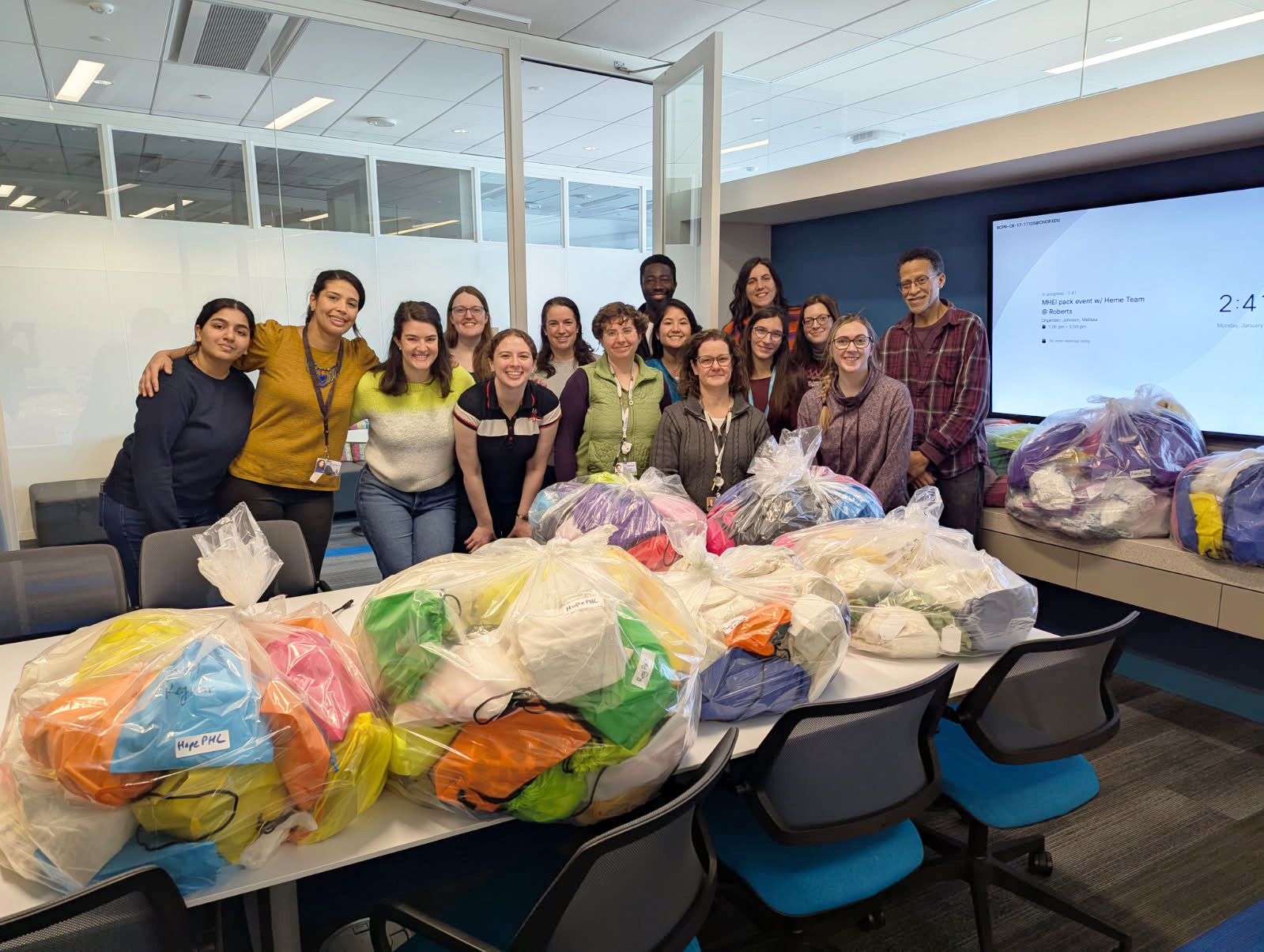
Small Start, Big Impact
When the Period Project first started in December 2020, 36 period packs were put together in a resident’s living room and given out at one shelter.
Now, the program delivers more than 450 period packs each month to 18 housing sites. The sites include shelters for families, survivors of domestic violence, and teens and adolescents across Philadelphia, Bucks, Chester, Delaware and Montgomery counties, as well as New Jersey.
Helping Thousands Every Year
The initiative has provided supplies for more than 10,000 periods. In a recent survey, 96% of participants said the packs help them attend school, work or job interviews.
“Most shelter residents arrive literally with just the clothes on their back and no means of income. Therefore, when their menstrual [cycle] comes on, they are in need of products. Having products on hand eliminates any shame or stigmas one may feel.”— Residential services manager at HHI partner shelter
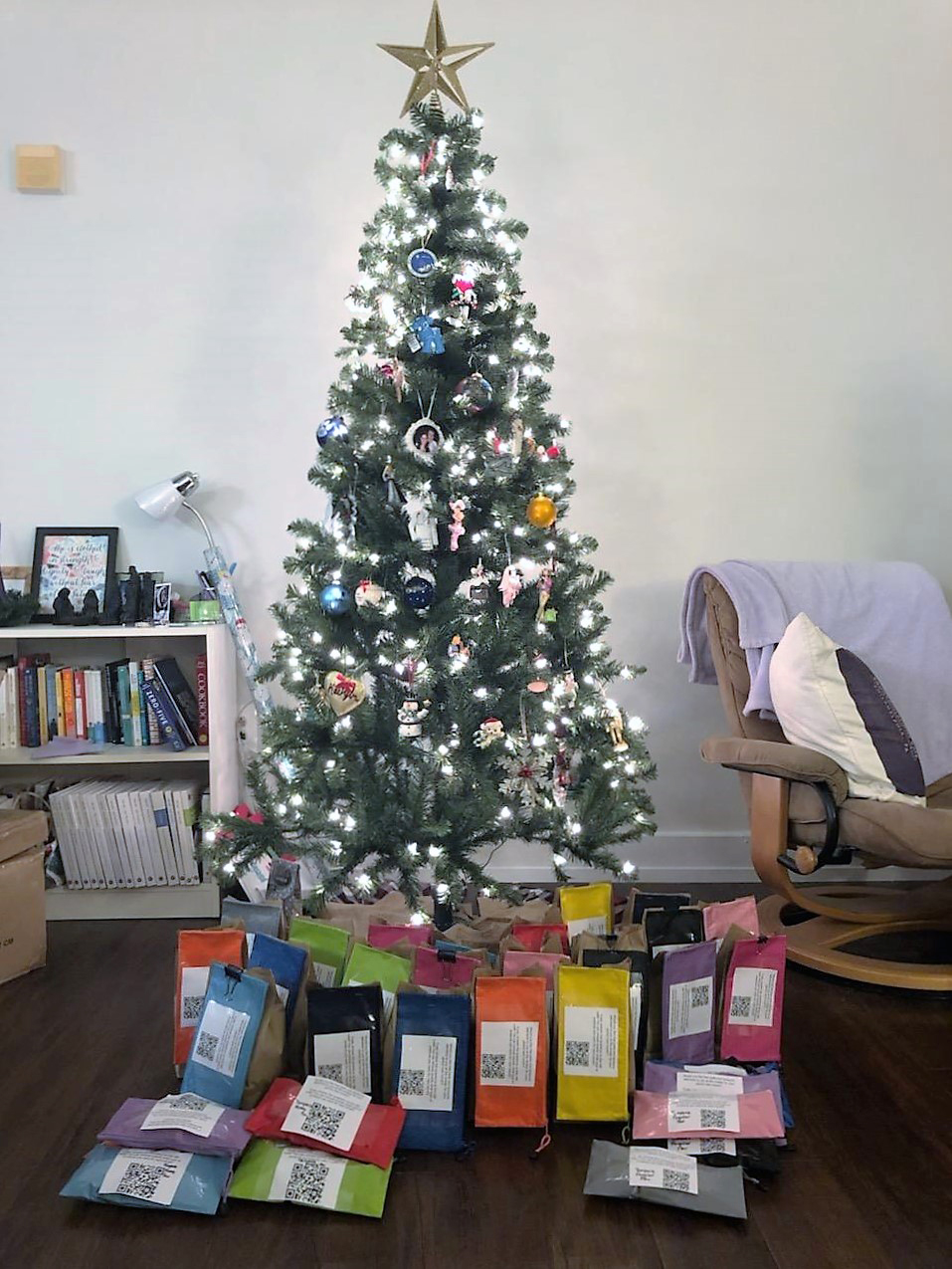
Helpers Make It Happen
The Period Project relies on monetary donations, period product drives and in-kind donations to stay stocked and sustainable. Teams across CHOP and external partners support the effort by collecting donations and assembling kits at monthly volunteer events.
The project has also received support from the CHOP Foundation’s Helping Hands Community Care Challenge, with corporate volunteers joining in. These changemakers show how small actions can fight big inequities.
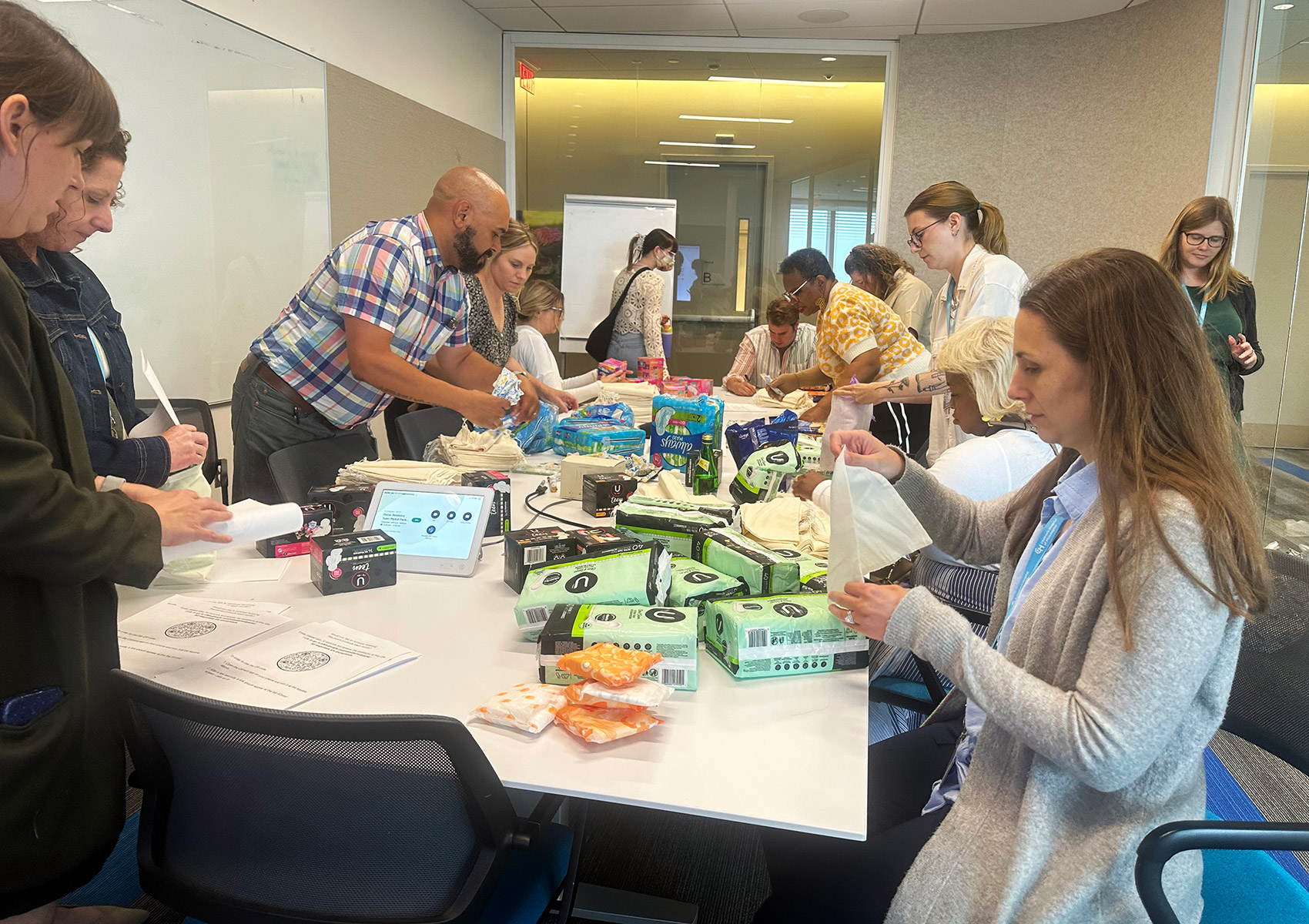
Expanding the Reach — and the Conversation
CHOP teams are also expanding education and advocacy around menstrual health. With support from the Office of Community Impact, Nurse Practitioner Bobbie Monaco, MSN, CRNP, created Know Your Flow, a video series teaching youth about periods, puberty, sustainable products and reproductive health. The videos are used in clinics, shelters and schools — and they’re available for anyone to watch, share as a resource, and use in their own programs and classrooms.
In addition, Dr. Shelby Davies and PolicyLab lead efforts to promote equitable access to menstrual health care and products, working to reduce period poverty and ensure all youth have the resources and education they need.
Support the Cause!
To donate funds, contact Meghan Schury. To donate supplies, contact Melissa Johnson.
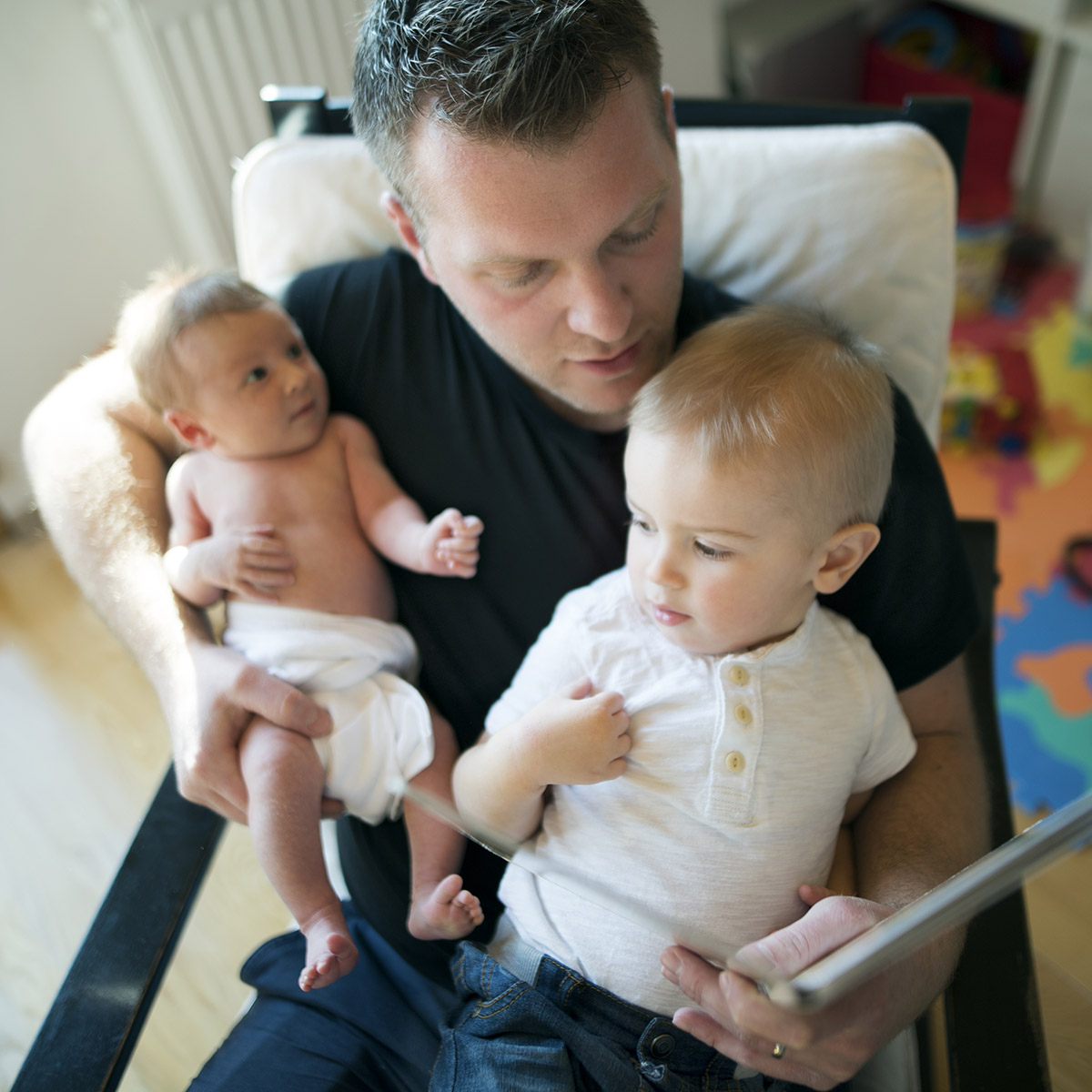
Encouraging Early Literacy: Books for Babies
When it comes to reading to children, it's never too early to start. The American Academy of Pediatrics (AAP) recommends pediatricians “use a robust spectrum of options to support and promote literacy.”
CHOP's Books for Babies program is designed to begin a child's journey to literacy. “We know that reading with young children results in improved language skills in toddlers and improves school readiness,” says Shelia Knerr, MD, a CHOP Pediatric Hospitalist who led the creation of the program. Learn More
It's in the bag!
Through the Books for Babies program, parents of newborns receive a gift bag that includes a board book, a bookmark, an application for a library card at their local library, and information on the well-established benefits of reading to their newborn.
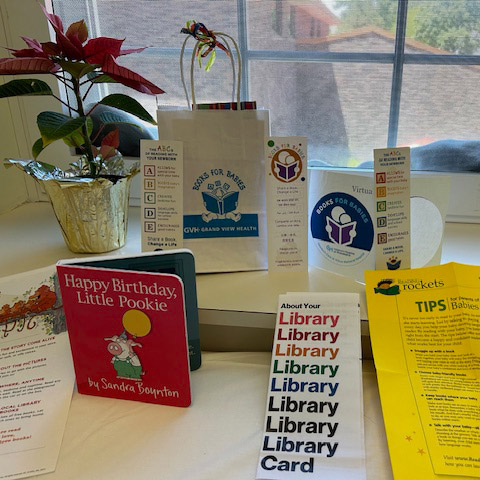
Benefits of reading to newborns
- Stimulates brain development
- Builds language, literacy and social-emotional skills
- Strengthens parent-child bond
By the Numbers · Since 2016
Program ImpactFrom 1,000 to 11,000 families reached every year.
Program GrowthFrom 1 nursery in a CHOP-affiliated hospital to 6 nurseries in the Philadelphia-South Jersey region.
This was an incredible journey that began, grew and continues to prosper due to the ongoing support of the CHOP Community Impact department, the CHOP grants programs, and the commitment of the whole CHOP enterprise to help their employees support children and families in their communities.
Sheila Knerr, MD, Books for Babies Founder
Dr. Knerr recently retired from her role as a CHOP Pediatric Hospitalist and passed the torch of Books for Babies leadership to Koryse Woodrooffe Ekouevi, MD, a CHOP neonatologist at Grand View Health, pictured left.
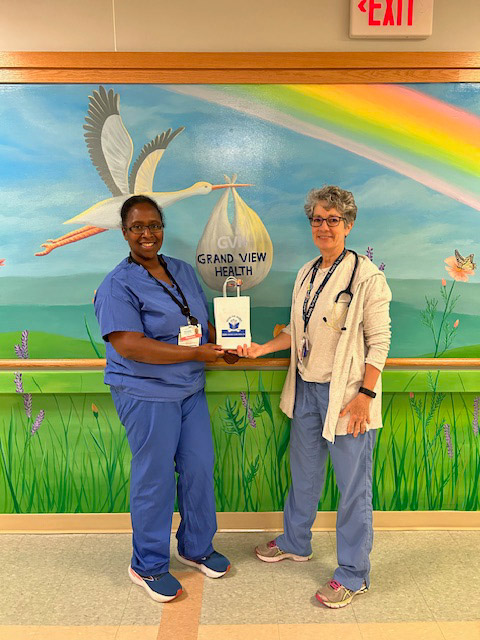
Learn more about CHOP's literacy programs
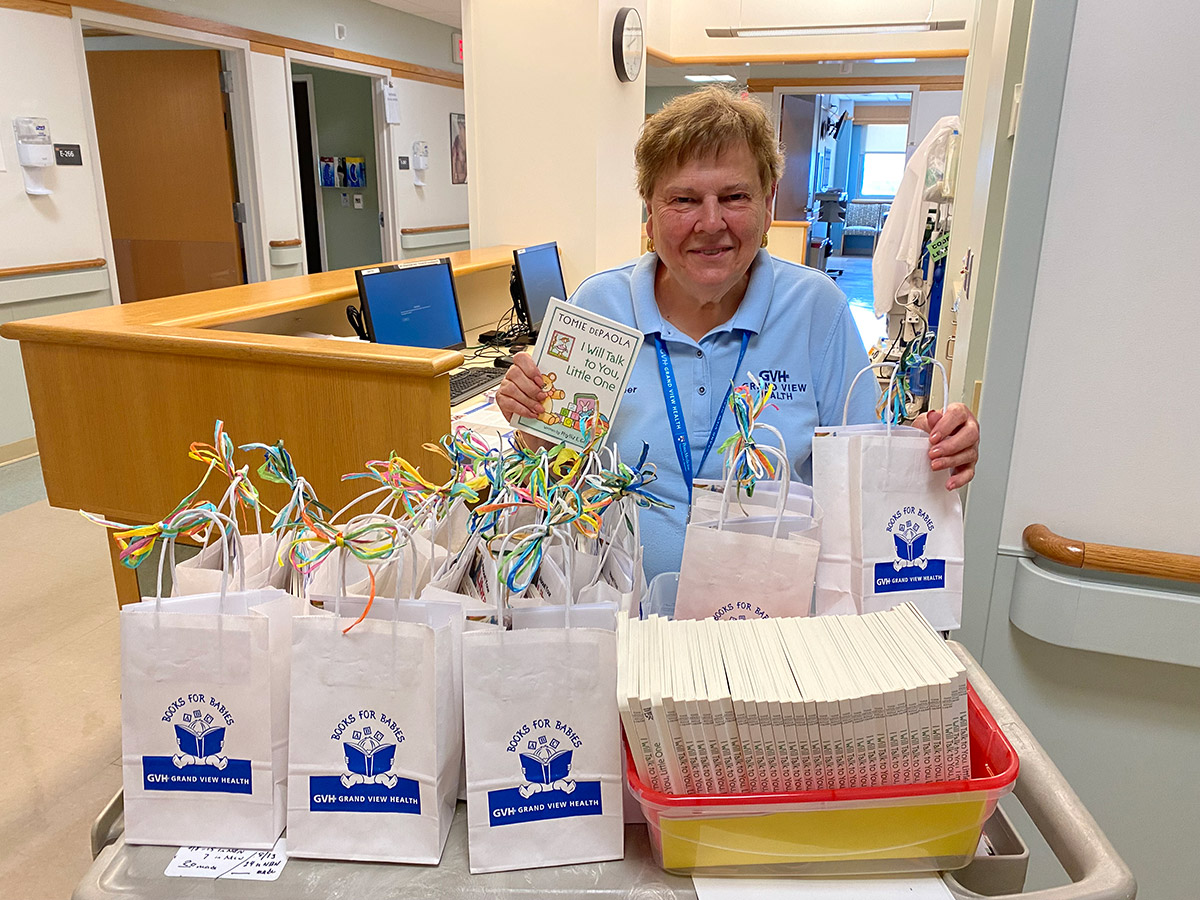
Healthy Food, Healthy Childhood
When a family doesn't have the resources to put nutritious food on the table, providing a bag of groceries just answers an immediate problem. The Food as Medicine program takes a broader approach that includes nutrition education for families and activities for kids so they're learning about healthy food while having fun. And it happens right where the kids receive their healthcare: The Nicholas and Athena Karabots Primary Care Center, Norristown.
The program began when social worker Victoria Armstrong saw Norristown families facing food instability coming out of the pandemic. Learn More
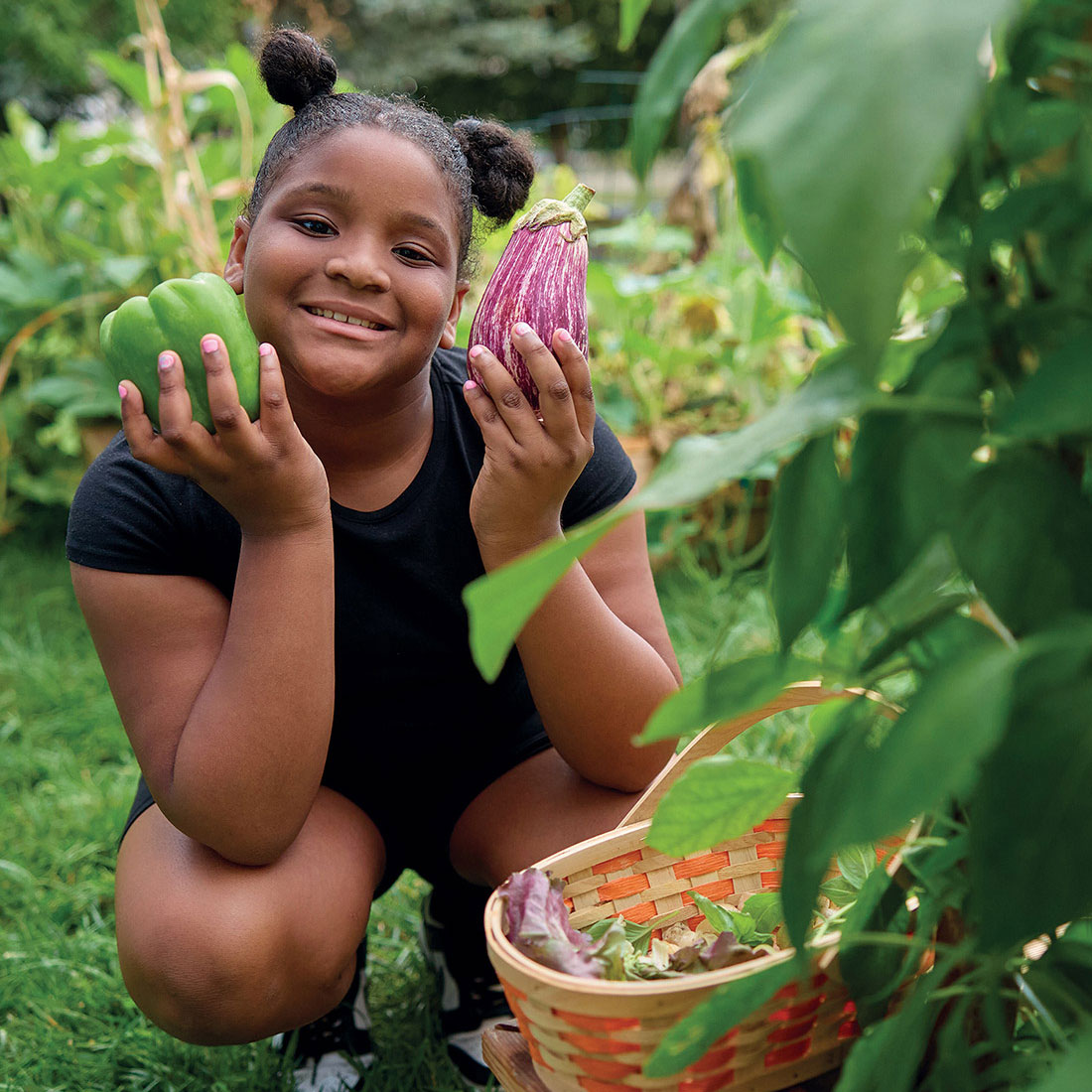
If They Plant It, They Will Eat It
The Food as Medicine family sessions teach children about the full cycle of vegetables — from garden to kitchen to plate — and nutrition's role in healthy growth and development.
Food — and So Much More for Families
Families Enrolled in Food as Medicine receive:
- Weekly delivery of fresh produce May through November, complete with info on what's in the box and recipes to try
- Twice monthly delivery of nonperishable groceries
- Monthly family sessions with exercise, story time, gardening, cooking demonstrations and dinner
- Cooking equipment that includes cutting boards, knives, grater, pots, pans and more, plus a cookbook of family-friendly, healthy fare
- Monthly children's book related to gardening or healthy eating
- Yoga mat and water bottle for each child
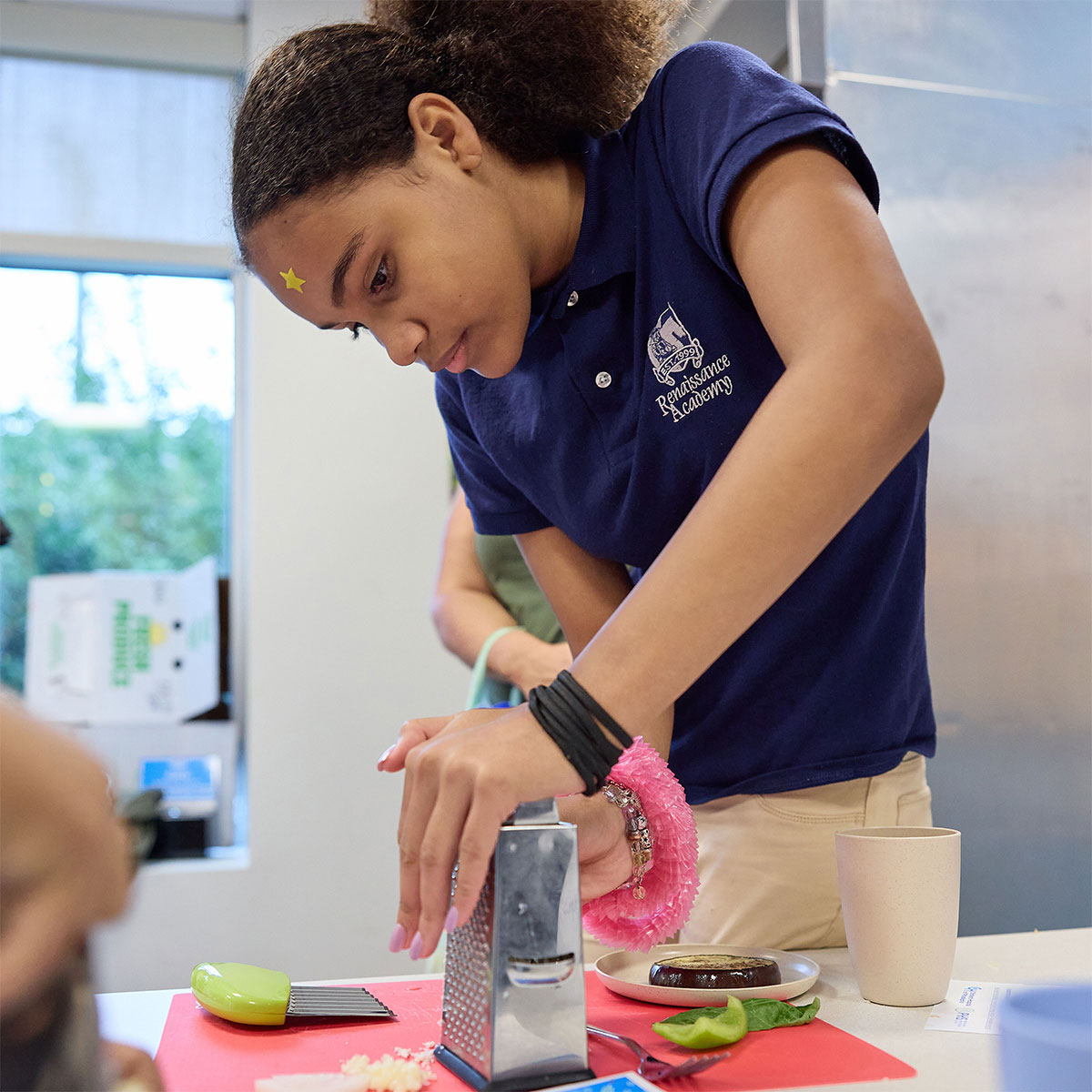
It Takes a Village to Offer Family Nights
Community partners that support Food as Medicine:
- Cutloose Cares and leaders Jordan and Emily Deane
- Pennsylvania Horticultural Society, which provided the on-site garden, cooking demonstrations and weekly produce boxes
- Martha's Choice Marketplace, a Catholic Social Services food pantry in Norristown
- Norristown-area restaurants
- Reach Out and Read and other CHOP volunteers
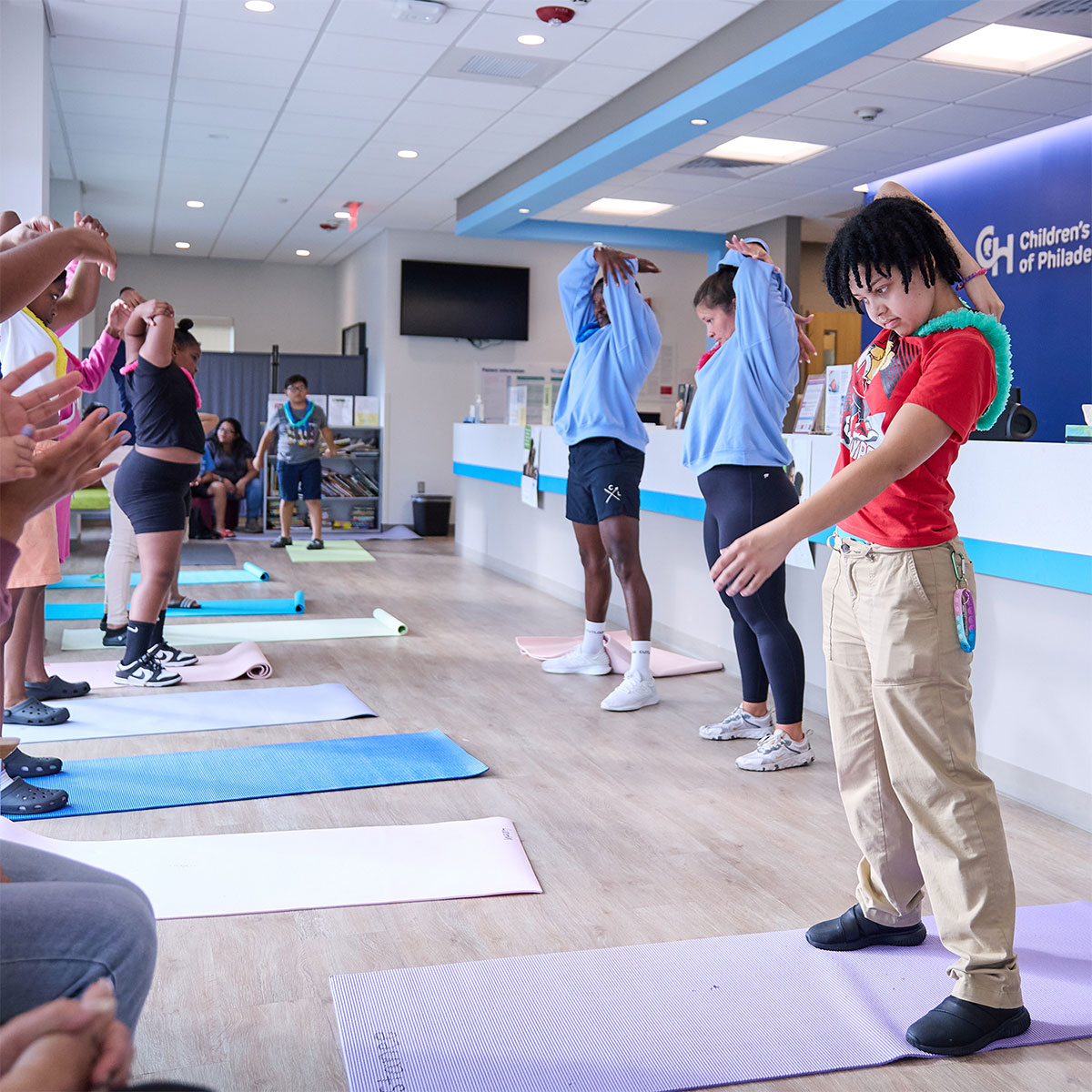
Learn About CHOP's Food-related Programs
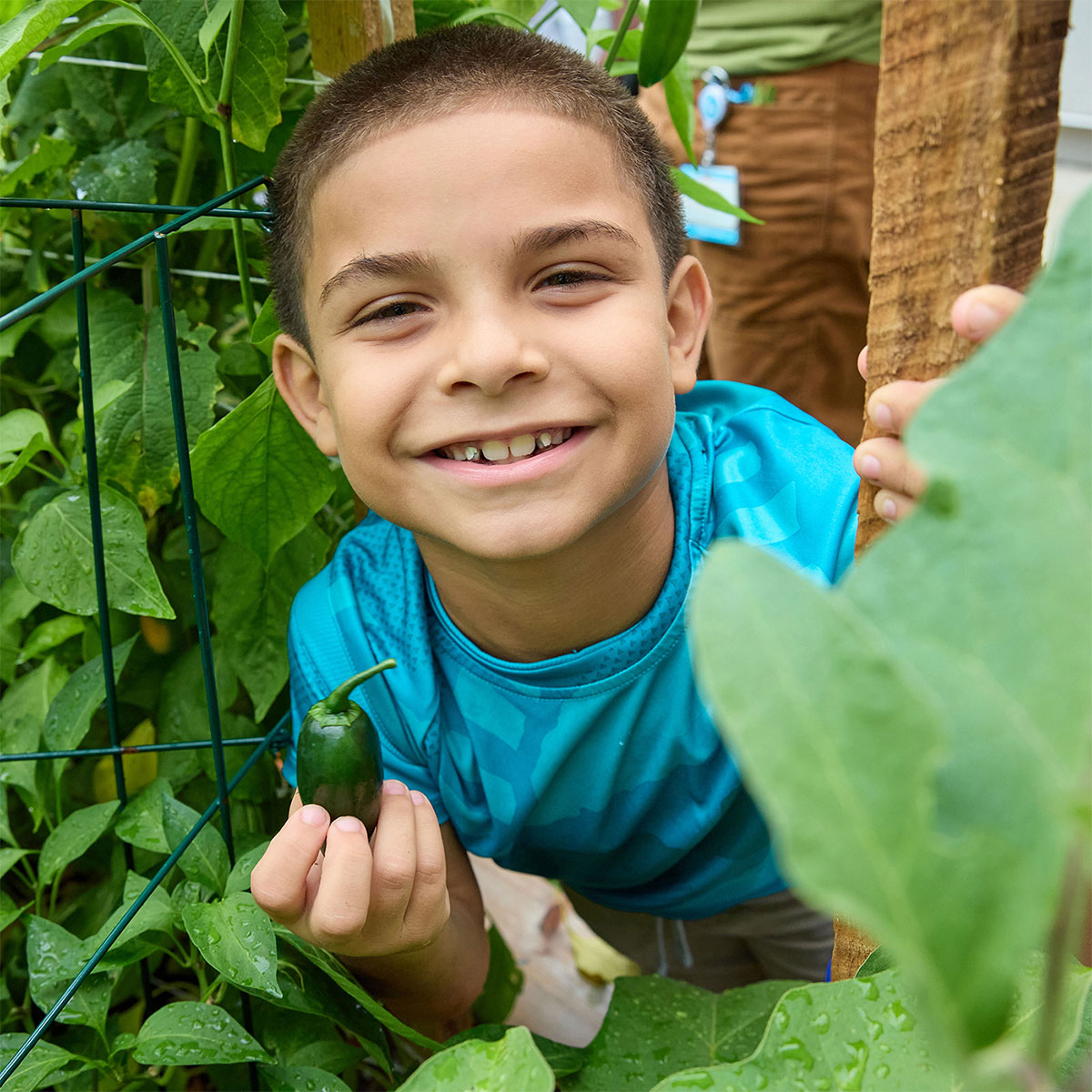
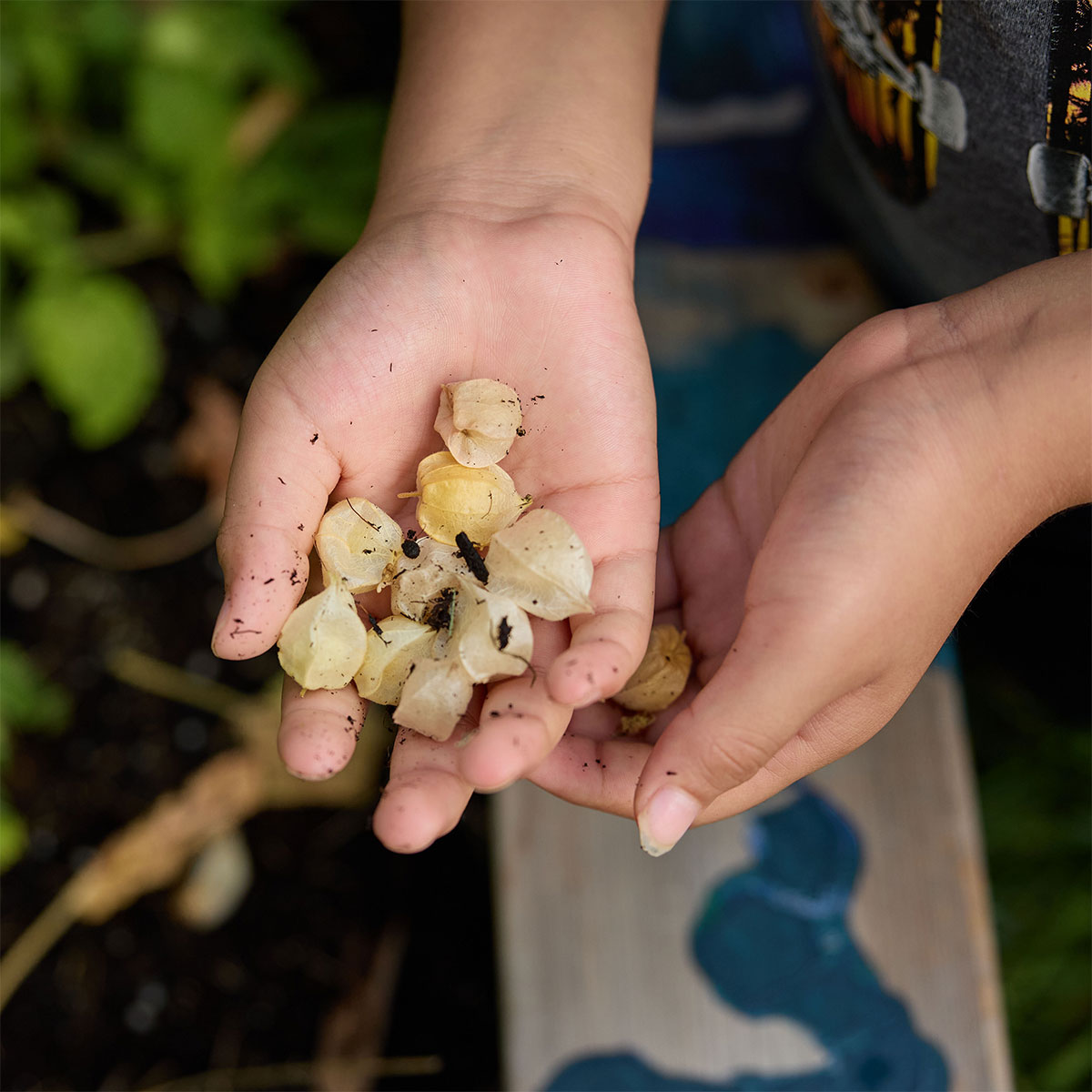
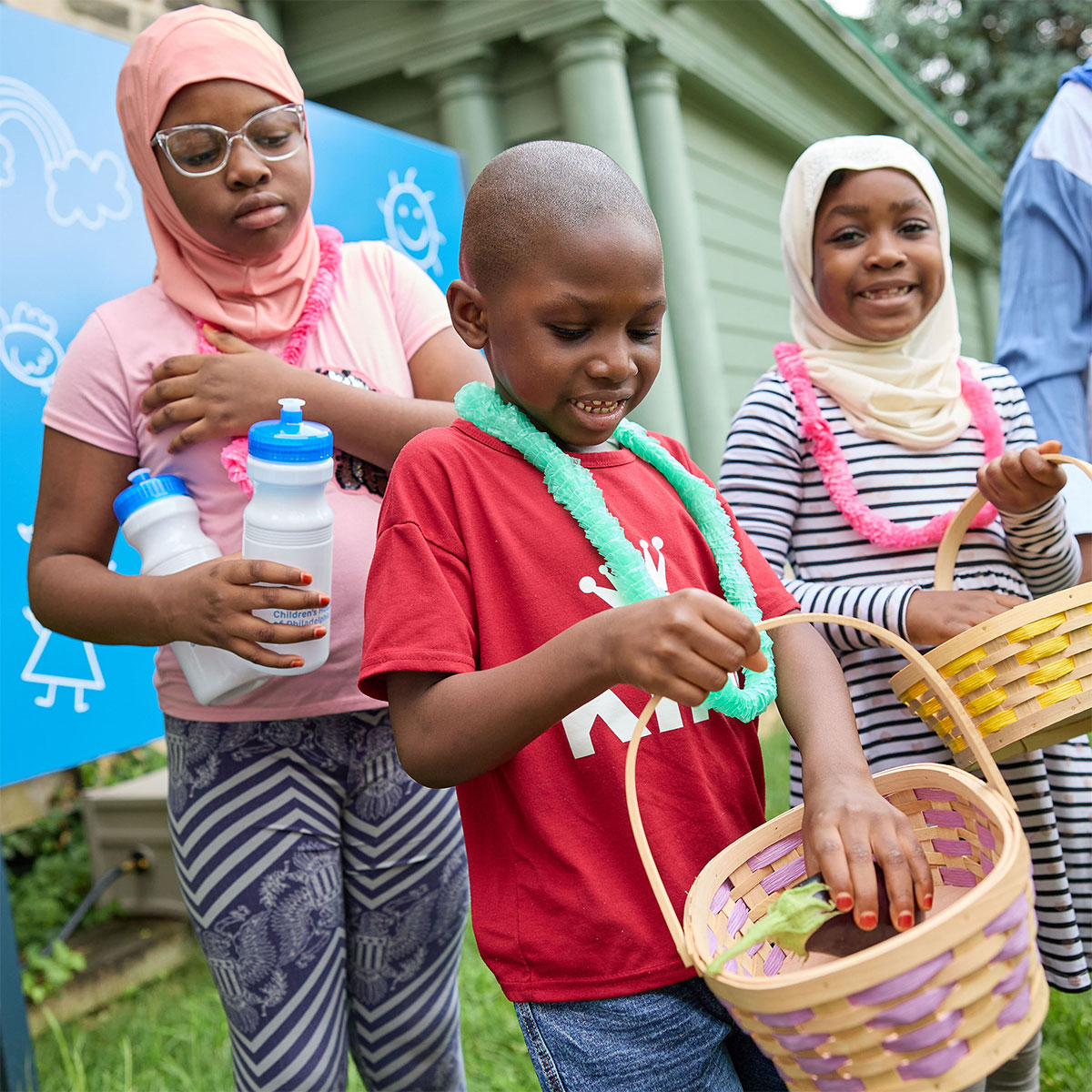
Photos of a Food as Medicine family night
Promoting Wellness Equity to Help Kids BE-WEHL
Mental health is vital to overall well-being, and mind-body practices are effective tools for enhancing it. Recognizing this, Children's Hospital of Philadelphia (CHOP) launched the Integrative Health (IH) Program 10 years ago to incorporate wellness practices such as yoga, massage, aromatherapy and acupuncture into patient care.
Now, IH is bringing the benefits of these practices into the community through their Behavioral Health — Wellness Equity for a Healthy Life (BE-WEHL) program. Learn More
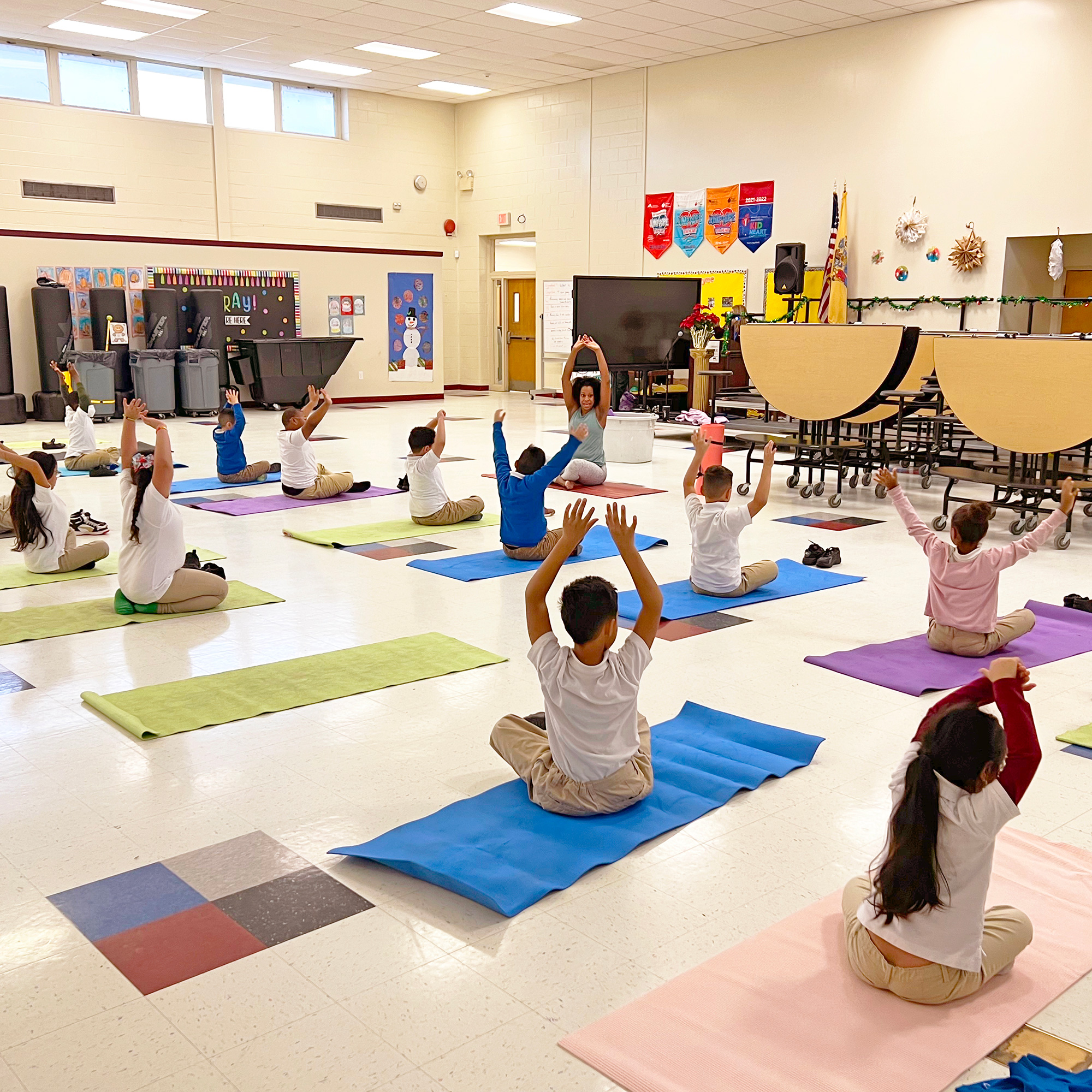
Launched in 2020
The BE-WEHL program offers a comprehensive seven-session curriculum designed to help children and families in under-resourced communities manage stress and cope with life's challenges. The curriculum covers mindfulness, nutrition, sleep, physical activity, yoga, self-massage, breathwork, nature and progressive muscle relaxation.
It was developed by experts from Integrative Health to address the unique needs of communities with higher levels of trauma and limited access to behavioral health professionals for children and adolescents.
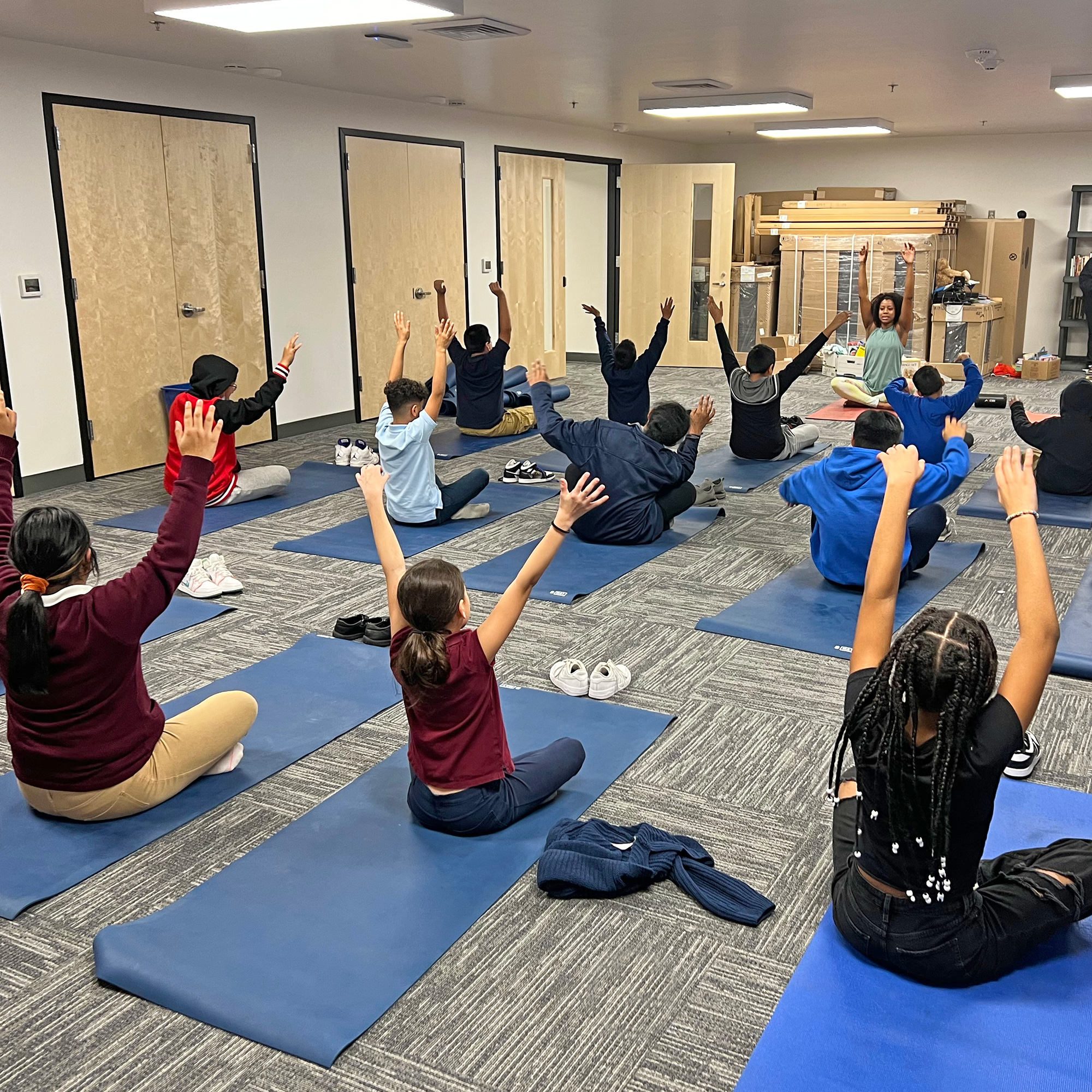
By the Numbers
BE-WEHL is unique in that we're not talking about a disease-specific thing. The focus is on stress, wellness and mindfulness. That allows us to be flexible and adapt the program, while always focusing on children.
Complementary therapies, like yoga, massage, aromatherapy and acupuncture, are traditionally accessed by affluent populations, so as a team we really wanted to find a way to systematically make these practices more available to populations living in underserved areas.
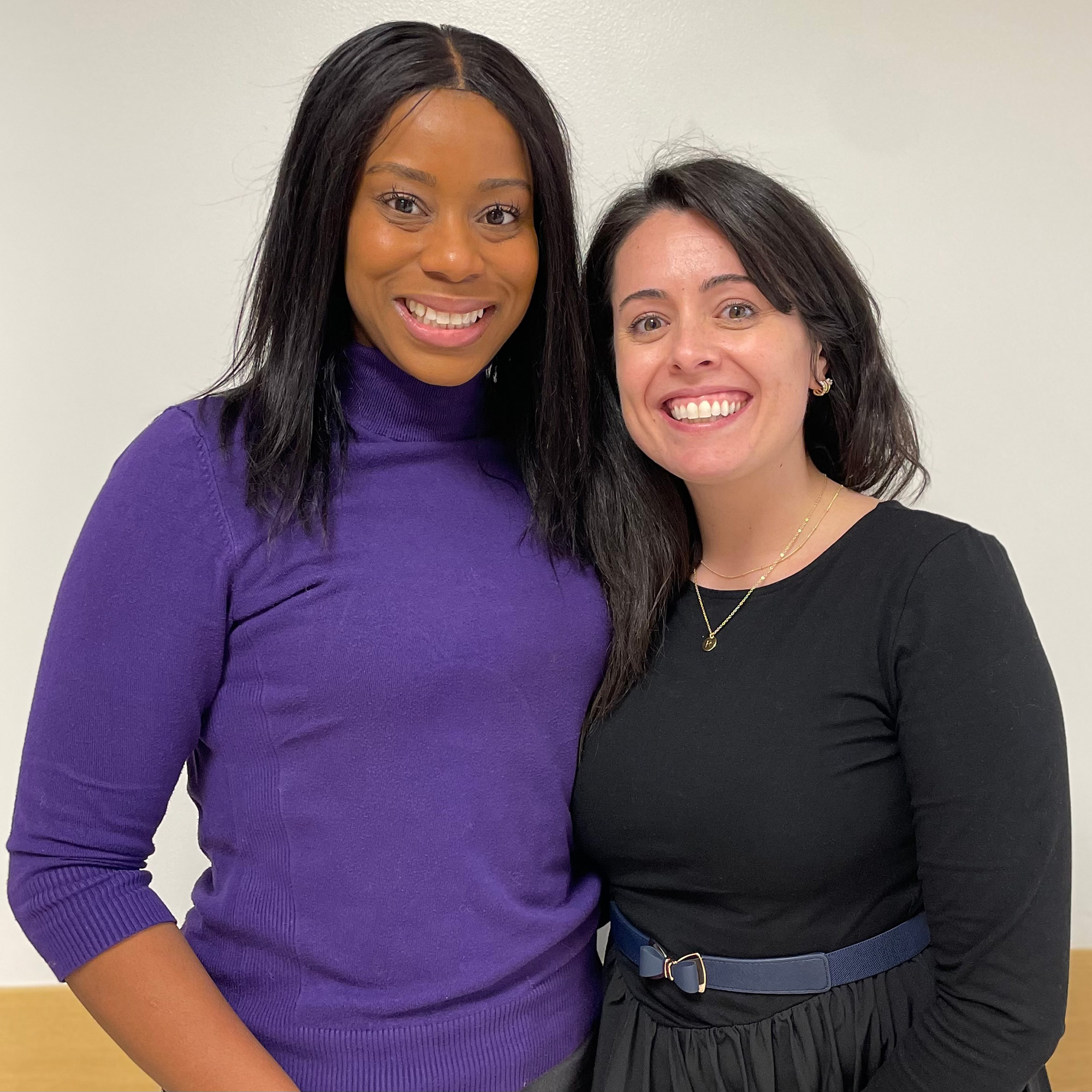
Growth Since Launch
BE-WEHL has continuously evolved to maximize its impact and sustainability. Initially focused on offering one-on-one virtual classes for CHOP patients with behavioral health challenges and their families, the program expanded in 2022 with support from CHOP's Office of Community Impact. This funding enabled BE-WEHL to bring its curriculum into elementary schools, reaching children ages 5-14.
More recently, the program introduced professional training workshops empowering educators at early childhood centers to adopt wellness practices to manage their own stress and teach these strategies to children.
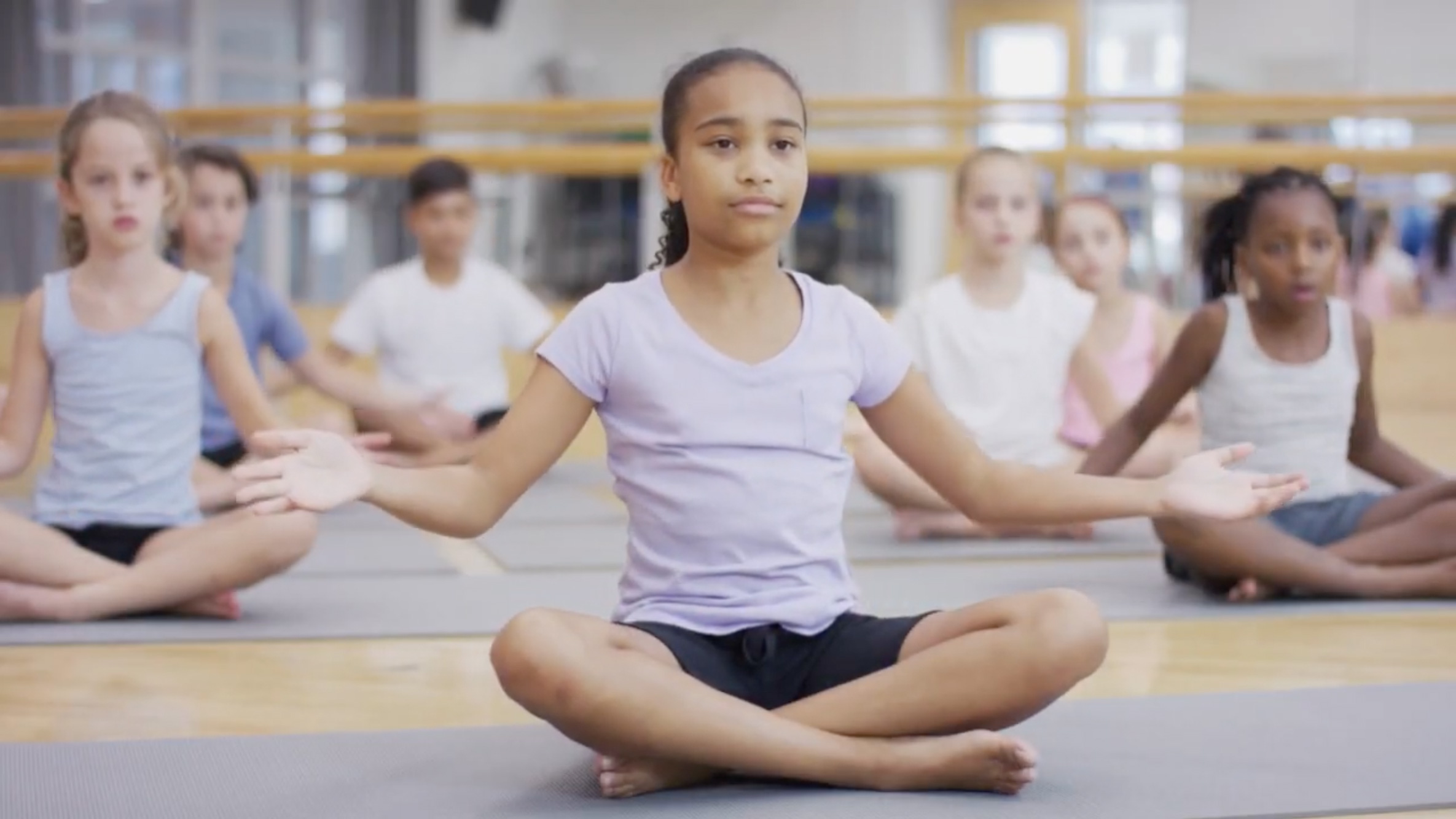
Watch this video to learn more about BE-WEHL
Guns and Kids: A Deadly Mix
Every day, eight children suffer gunshot wounds because of improperly stored or misused guns in the home. Eighty percent of teens who use a firearm to commit suicide use a family member’s gun.
The Center for Violence Prevention partners with community organizations to reduce those numbers by sharing information on how to safely store firearms and handing out hundreds of free gun locks at community events across Philadelphia. CVP also provides these resources to families during primary care and emergency room visits at CHOP. Learn More

Promoting Gun Safety Neighborhood by Neighborhood
When Dee Dukes, President of the Wynnefield Community Neighborhood Association, asked if the Center for Violence Prevention would come to a local event, the answer was a resounding “yes.”
Reaching Out to Families
CHOP’s Gun Safety Program talks to families in primary care offices, the ER and their communities.
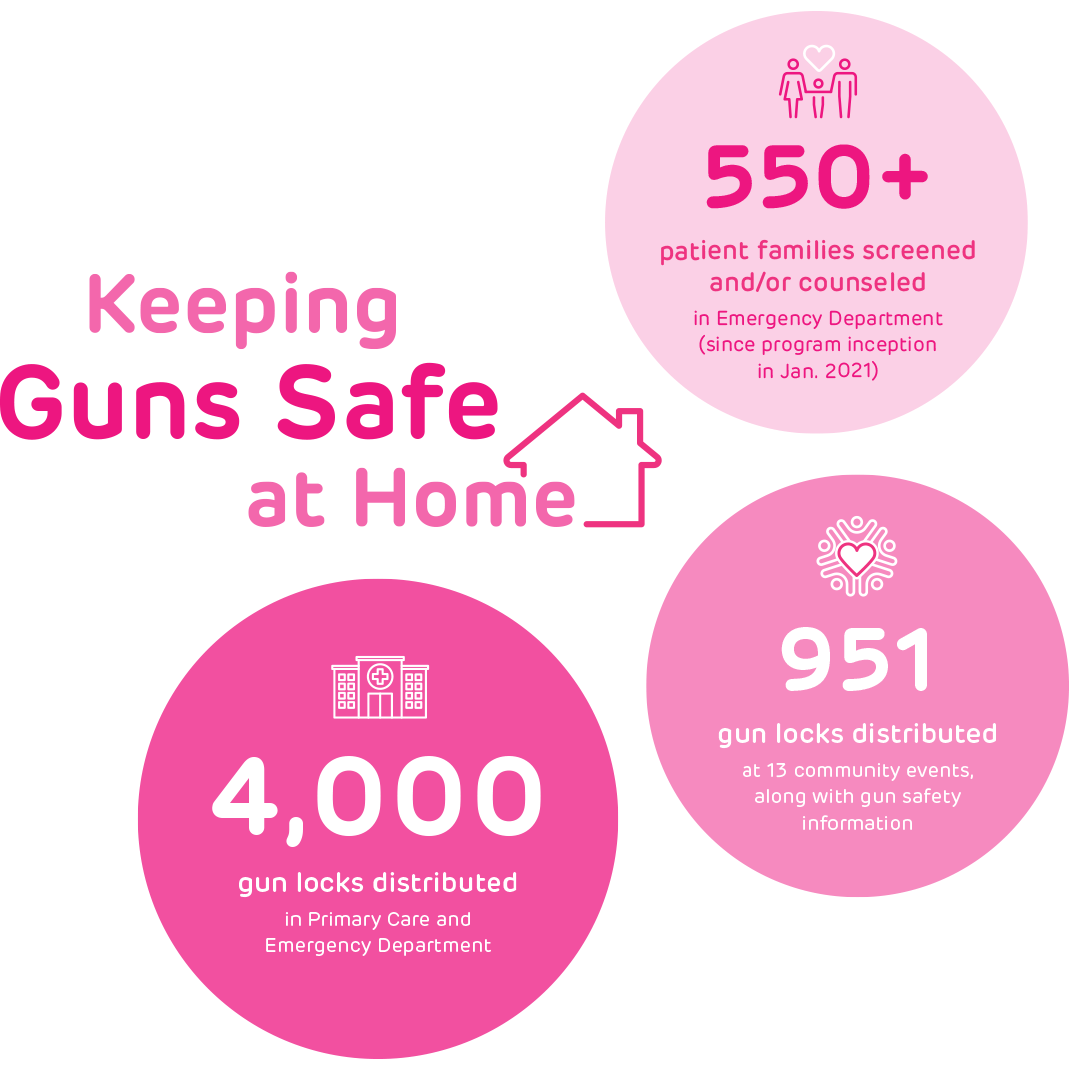
Partnership for Playgrounds
Collaboration among the Healthier Together Initiative at CHOP, the Trust for Public Land and Add B. Anderson Elementary School’s principal and other stakeholders — with design help from the school’s students — turned a half an acre of asphalt into a haven that supports active play and encourages spending time outdoors.
The project also brings a safe space to the Cobbs Creek neighborhood, providing a meeting place for community events beyond the school’s operations. Learn More
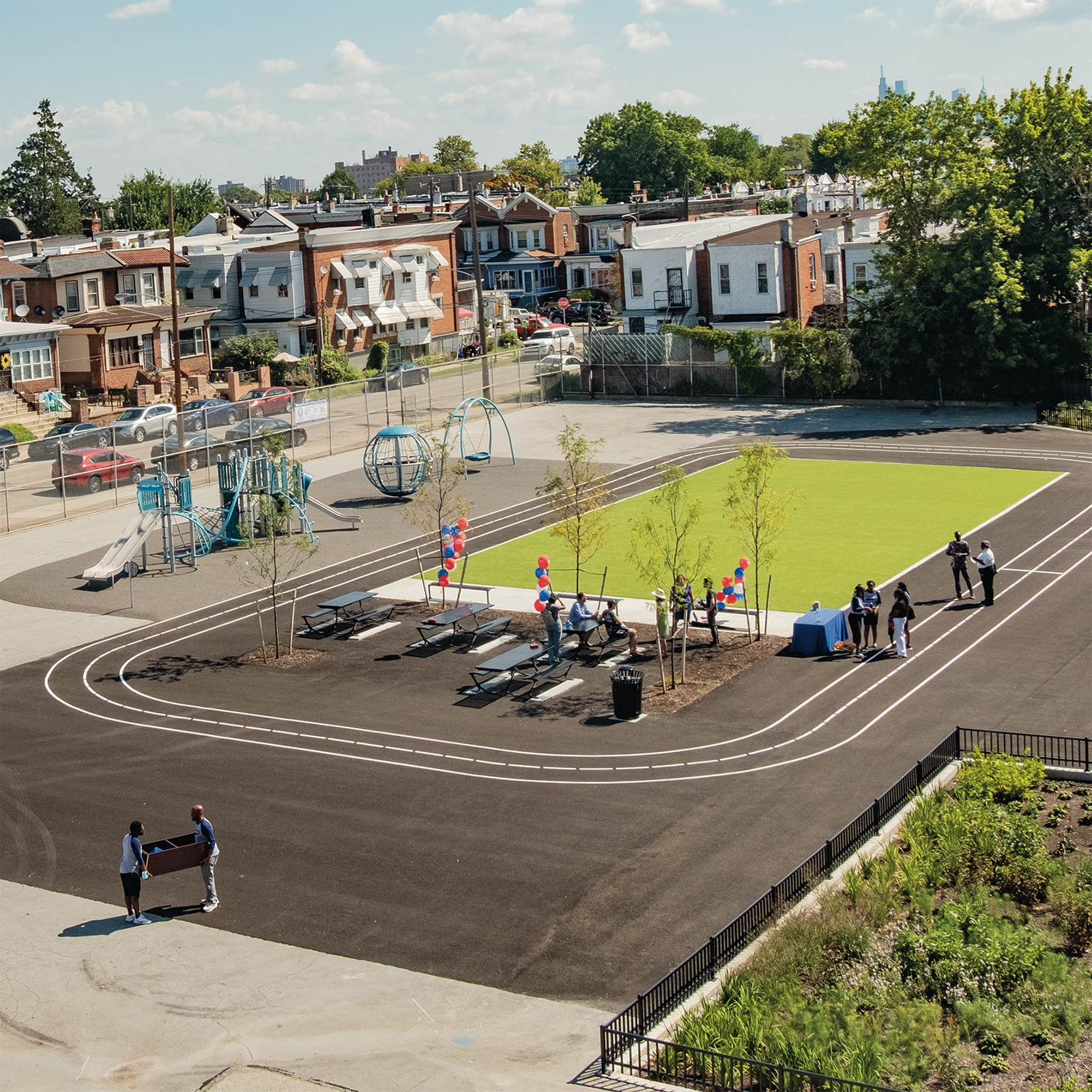
Shared Goals Benefit Children, Community
Research shows that when kids are active during recess, they can better focus when they return to the classroom. The renovated playground at Anderson Elementary provides different areas for different types of play.
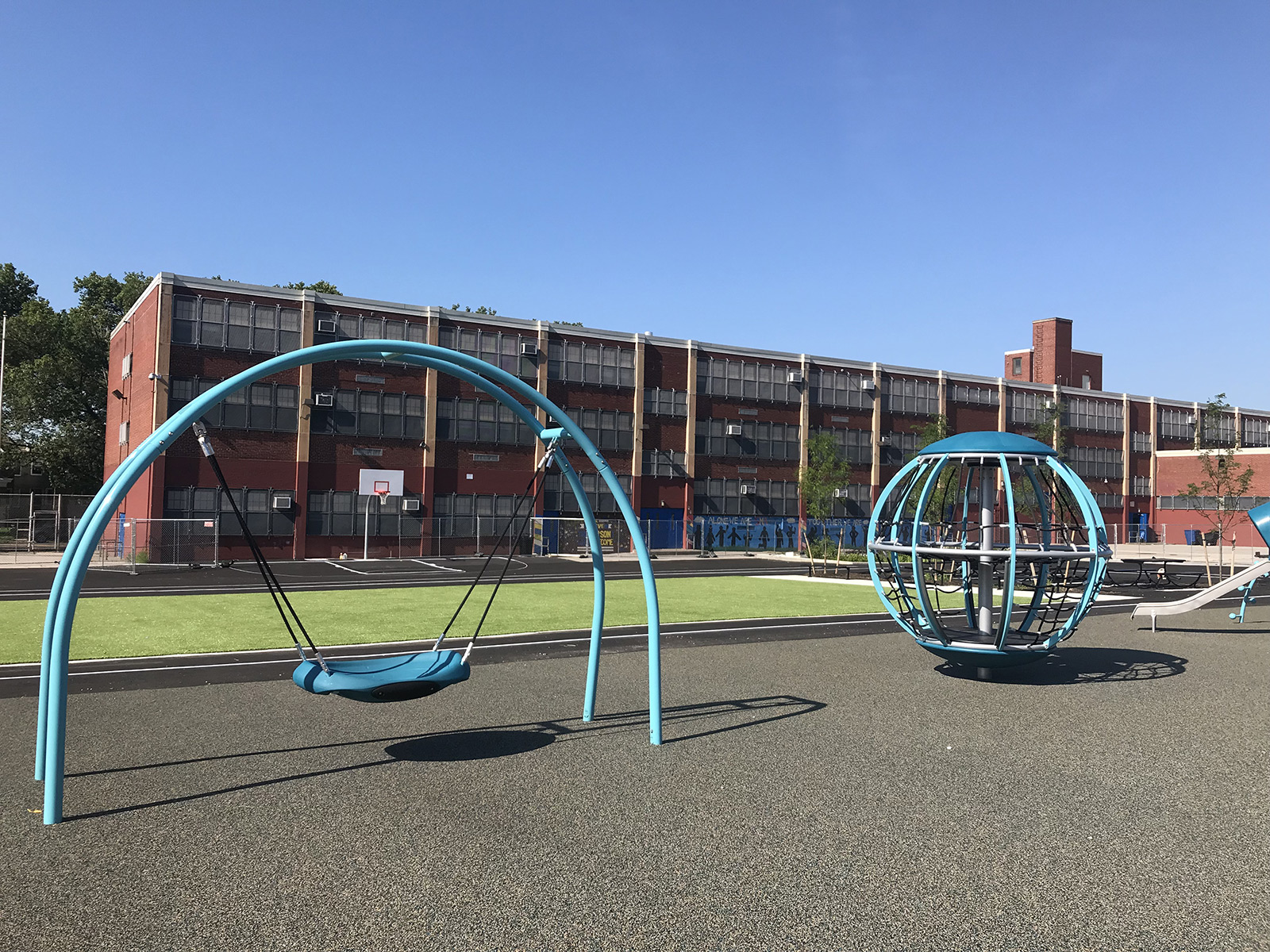
Learn More About
The students at Anderson, and the residents of Cobbs Creek, deserve every amenity that we see in neighborhoods of greater privilege. Everyone should have a welcoming, beautiful and safe place outdoors where they can learn, play and gather with neighbors. We all have a role to play in addressing inequality, and the schoolyard at Anderson represents one step in the right direction.
Anderson Elementary School Principal, Laurena Zeller
Safe Medication Disposal Saves Lives
Leftover medications in the home, especially opioids, present a danger to a curious toddler or to a youth seeking to use or to harm themselves. By placing secure drug take-back bins near the entrances to our Philadelphia and King of Prussia hospitals, CHOP gives families a simple, anonymous way to keep their entire family safe by getting their old meds out of the house. Learn More
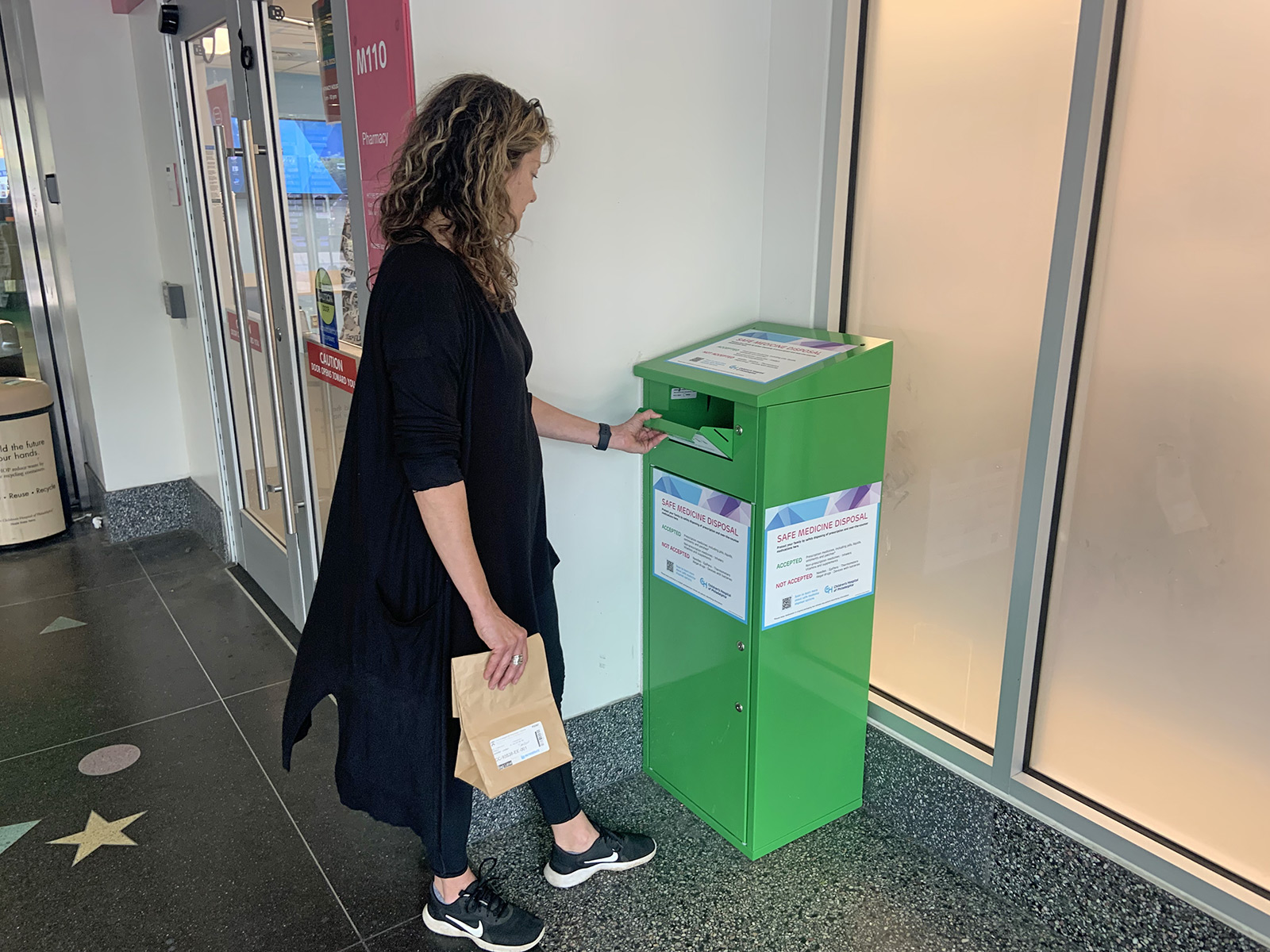
A Plus for the Community
Jordan Lewis, PhD, as Policy Director for the Pennsylvania Department of Drug and Alcohol Programs, heads up the state’s take-back bin initiative. Did you know more than 1 million pounds of medications have been safely disposed of via the state's bins?
Medicine and More: The Family Connects Program
Sometimes, a family visiting the Emergency Department at Children's Hospital of Philadelphia has social needs that go beyond their child's immediate medical problem. Families may struggle to have enough food or a safe place to live. CHOP created Family Connects to provide community resources to meet those social needs. Learn More
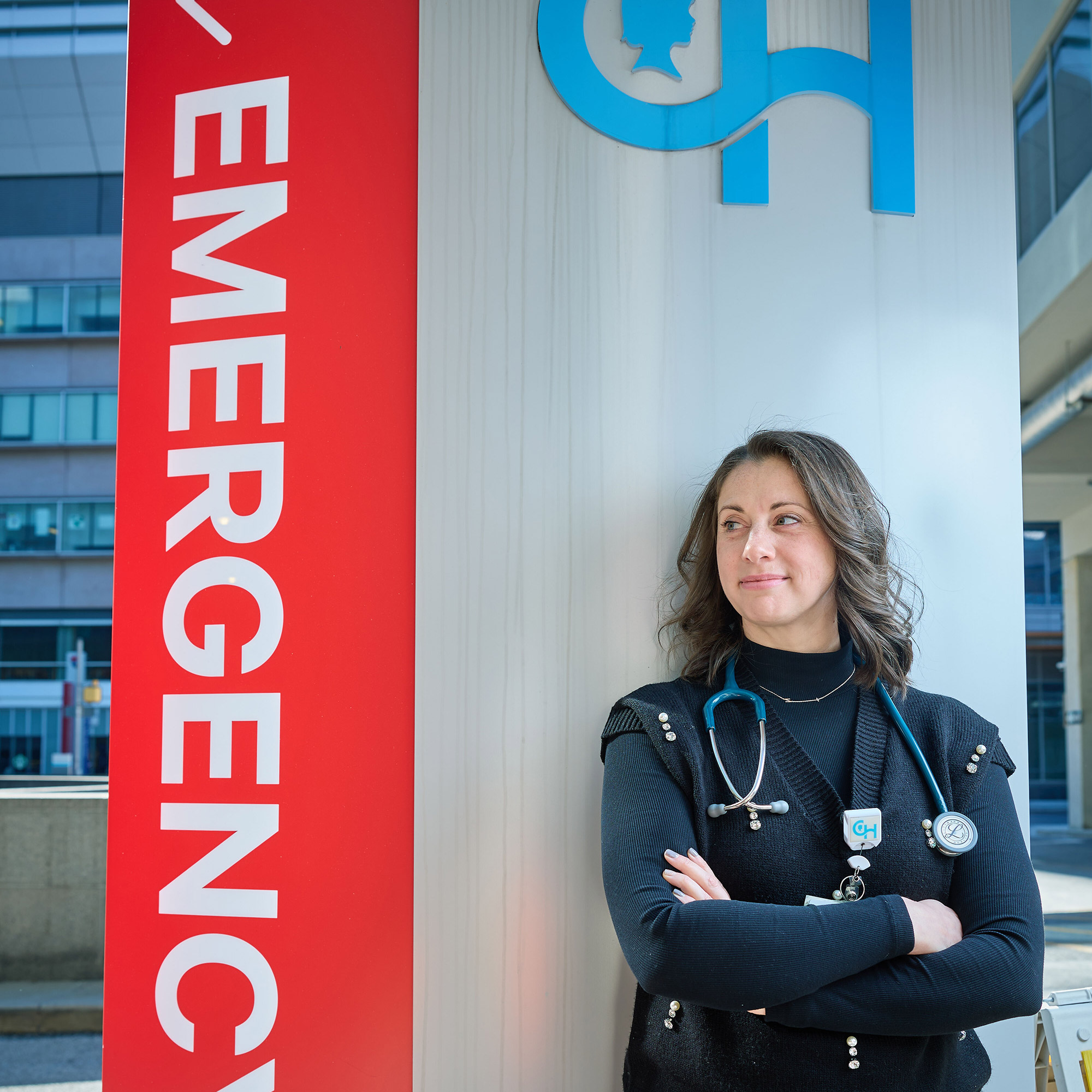
Families' Most-Requested Areas of Need
- Housing
- Food resources
- Baby/child items
- Utility needs
- Community mental health resources
- Child/daycare
- Transportation
- Financial assistance
- Clothing
- Education resources
- Applying for social services
- Employment
- Health/dental insurance
- Teen resources
- Disease-specific information
- Primary care resources
- Case management
From its inception in the summer of 2020, Family Connects has:
emotional support to 6,000 Families
from more than 300 Student Volunteers


